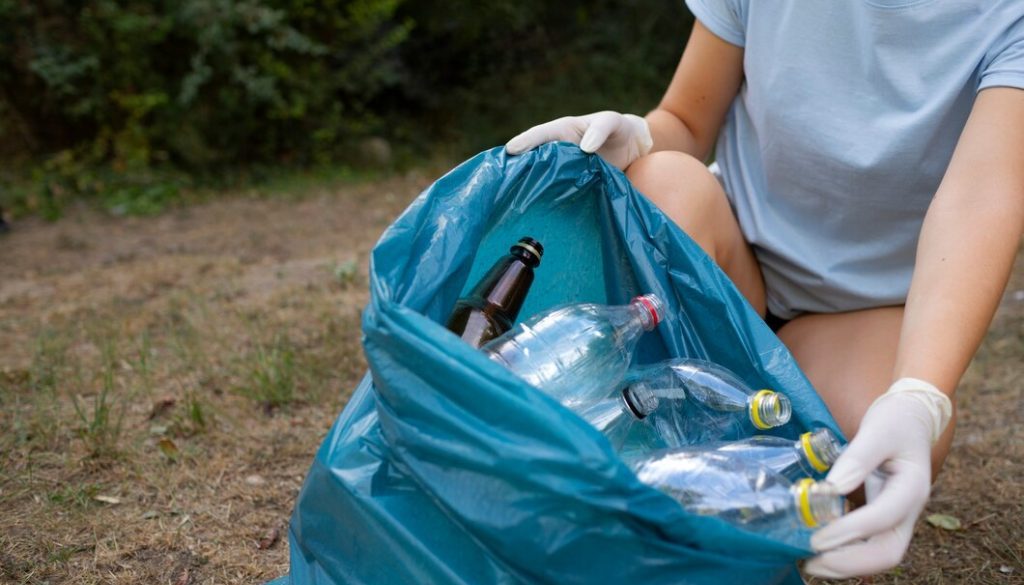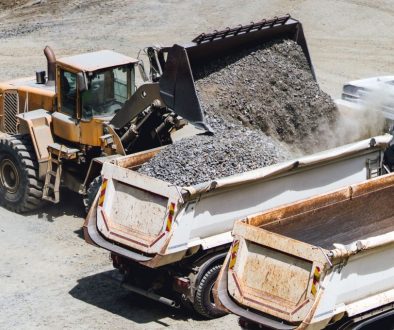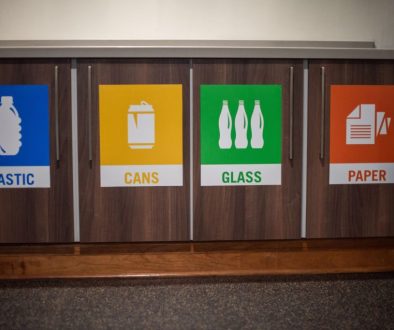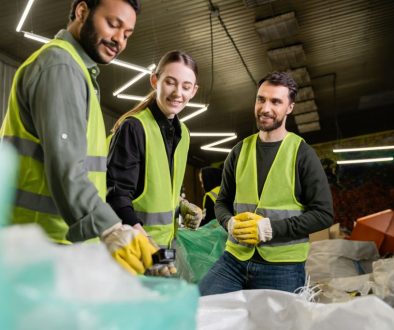Waste disposal isn’t just about throwing things away. It’s about knowing what goes where, how it should be handled, and ensuring the safety of not only those involved in the process but also our environment. Here are Enviro Skip Hire, we are dedicated to providing solutions and sharing knowledge that helps our community manage waste more responsibly. Safety is paramount when it comes to handling rubbish, especially when hazardous materials are involved.
Our approach combines thoroughness with simplicity to empower you, whether you’re disposing of household waste or managing waste on a larger scale for your business. By adhering to clear safety guidelines and understanding the implications of improper waste disposal, we can collectively make strides towards a safer and cleaner environment. Let’s explore how to maximise safety in waste disposal—from recognising different types of waste to the proper use of skips and essential safety checks.
Assessing Your Waste: What Can and Can’t Be Disposed Of
Recognising what can and cannot be thrown into skips is the first crucial step towards safe and responsible waste disposal. We make it a priority to educate our clients on differentiating between non-hazardous and hazardous waste, as this significantly impacts how waste should be handled. Non-hazardous waste generally includes materials like paper, glass, and some plastics, which are suitable for regular disposal methods. However, items such as electronic appliances, batteries, paint, and chemicals are classified as hazardous and require special treatment.
It’s essential to assess the waste thoroughly before deciding on the disposal method. We provide detailed guidelines that help you categorise your rubbish correctly. This not only ensures compliance with environmental regulations but also maximises the effectiveness of recycling programs. By properly segregating waste, we can avoid contamination of recyclable materials, thereby enhancing the efficiency of recycling processes and reducing the amount of waste that ends up in landfills.
Key Safety Equipment for Handling Waste
Handling waste, particularly hazardous types, demands appropriate safety measures to protect oneself and the environment. The right safety equipment is indispensable in this process. For anyone involved in waste disposal, we recommend the use of protective clothing, including gloves, safety goggles, and durable overalls. These items protect against potential irritants and hazardous substances that might be present in waste materials.
Furthermore, we stress the importance of using specialised containers and labelling for hazardous waste. These containers are designed to prevent leaks and secure harmful materials safely. Proper labelling is equally critical as it provides clear identification and handling instructions, ensuring that all safety protocols are followed throughout the disposal process. By equipping yourself with the correct safety gear and employing these best practices, you can handle waste confidently, knowing that you are upholding the highest safety standards and contributing to a safer environment.
Step-by-Step Guide to Using Skips Safely
Utilising skips for waste disposal is a practical solution for both domestic and commercial projects, yet it’s crucial to understand the proper technique to ensure safety and efficiency. To start, always choose the right size of skip according to the volume of rubbish you expect to generate. Overloading a skip is not only unsafe but can also lead to unnecessary fines and complications during the collection. Once the correct skip is selected, position it on a stable, flat surface to prevent any shifting or tipping which could cause accidents.
When filling the skip, distribute the weight evenly and avoid placing heavy items on one side. It’s essential to keep the fill level within the confines of the skip’s walls — items should not be sticking out. This not only ensures safety but also adheres to legal transport regulations. For sharp or heavy materials, take special care to arrange them thoughtfully to prevent injury when adding more waste or when the skip is eventually handled by our team. Remember, safety is paramount, and a properly loaded skip makes for a secure and effective rubbish removal process.
Regular Checks and Maintenance to Ensure Safe Disposal
Regular checks and maintenance of disposal facilities like skips and recycling bins are vital to preventing accidents and ensuring that waste handling continues to meet safety standards. At our company, we conduct routine inspections to ensure that all skips are in optimal condition and free from damage that could potentially harm users or hamper effective waste disposal. These checks include looking for signs of wear and tear, ensuring functionality of covers and doors, and verifying structural integrity.
Maintenance also involves upgrading older skips as needed and keeping all associated equipment in good working order. This regular upkeep helps avoid any disruptions in waste disposal services and supports the overall safety of waste handling practices. As part of maintaining high safety standards, we also encourage our clients to inform us promptly of any concerns or anomalies they notice during their skip use. By collaborating closely with our users, we help create an environment where safe disposal practices are the norm, not the exception.
Conclusion
Effectively sorting and safely handling rubbish require attention to detail and proactive management. Whether you’re dealing with household waste or managing larger waste streams from commercial sites, the principles of effective sorting, correct rubbish disposal, and safe skip usage remain the same. By following these guidelines, not only do you contribute to a more sustainable environment, but you also ensure that waste handling is safe and compliant with regulations.
If you need further guidance on waste management or wish to hire a skip that meets your specific needs, reach out to us at Enviro Skip Hire. Let us help you manage your waste more efficiently and safely. Together, we can make a significant impact on our environment, one skip at a time!




